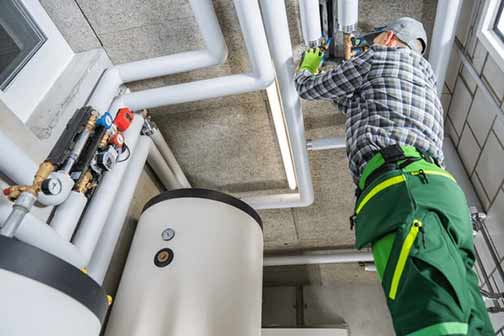
Plumbing problems in a commercial building are a class of non-business problems that can have major effects on the financial performance of a business, says Lone Eagle Management Philly. Plumbing problems can undo the efforts you have invested in branding your business and marketing your products (or services).
Few things damage a business’s reputation more than malfunctioning toilets and plumbing or the smell of sewage in the business premises. Although your building’s plumbing is not directly linked to the quality of your business offerings, it can have a huge impact on how customers perceive your brand.
That is why it is vital to stay many steps ahead of the plumbing problems in your commercial building. But to do that, you should know how to identify the telltale signs of problems in your plumbing. This post explains 10 of the biggest signs of plumbing issues in your commercial building.
Low water pressure
Low water pressure is a major nuisance in commercial plumbing systems. The problem is easier to spot in a commercial building and its impact is often worse than in residential plumbing systems. This is because of the number of toilets, urinals and faucets in a commercial building, and the large number of people using those facilities simultaneously.
Water stains on the building
Ceilings and walls are favorite locations where plumbing leaks hide. Brown streaks on the walls and ceilings make it harder to detect water stains on your building’s structures. In addition to watermark stains, mold and mildew can indicate leaks in the plumbing. These problems threaten the structures of your building and the health of its occupants.
Slow draining fixtures
Depending on their number, slow-draining fixtures can be a sign of minor or major drain clogs. If one or two drains in the building are draining slowly, you may have a blockage inside the drainpipes for those specific fixtures. However, if several drains are slow, the problem is probably due to a major blockage inside your sewer line.
Sewage odors and other strange smells
A strong smell of sulfur inside your building or in the yard could mean that you have a broken sewer line. Strong smells rising out of floor drains, bathroom drains and other fixtures could mean that there is a lot of buildup inside the drain pipes. It could also be a sign that you have a blocked sewer vent stack.
Higher water bills
Your water bills should hover around an average amount every month, with spikes during some holiday seasons because of the increased traffic into your building. If there is a significant deviation from this pattern – higher water bills without an equivalent increase in water usage – you may suspect a hidden water leak in your plumbing.
Frequent clogs
Drain clogs are a common issue in plumbing systems. However, they are more frequent in commercial buildings because their plumbing systems are subject to more abuse. However, if clogs become a permanent problem in your plumbing, despite your best efforts to fix them, there is a chance that you may have a large blockage inside your main drainage pipe.
Strange sounds from the plumbing
Your plumbing systems will make some noise whenever you use them. But if you hear bubbling or gurgling sounds each time you turn off a faucet, it could be a sign of trapped air inside the pipes. Banging, clattering, hissing, squealing or knocking sounds from the plumbing are signs of bigger issues in the system.
Water discoloration
If your water is discolored – has a brown, reddish or cloudy color – it means your water pipes have a lot of rust or mineral deposits inside them. It could also mean that a ruptured pipe allows soil into the water supply. Discolored water is contaminated water. This problem should be fixed immediately.
Inadequate hot water
Water heater issues are a common problem in commercial plumbing because of their complex heating systems. Issues like insufficient hot water or inadequately heated hot water indicate water heater problems. Paying attention to minor hot water issues can help to prevent major water heater problems.
Discolored pipes on the water heater
Another common water heater problem is metal pipe oxidation; this is when the pipes attached to the water heater turn green. That typically happens at those locations where copper pipes connect to the top of the water heater. The problem is caused by electrolysis and can cause pinhole leaks in the water pipes or leaks in the water heater tank.
Taking immediate action after you spot these plumbing issues, by calling a reliable emergency plumber, will ensure that the problems don’t spiral out of control.
Once you take prompt action, the highlighted issues are problems that a reputable commercial plumber can help you solve.
But if you go a step further and hire a commercial plumbing service to do routine inspection and maintenance of your plumbing, you may even be able to prevent these problems altogether.

